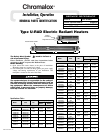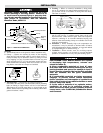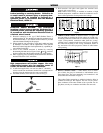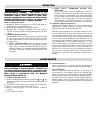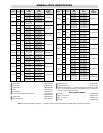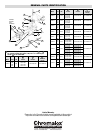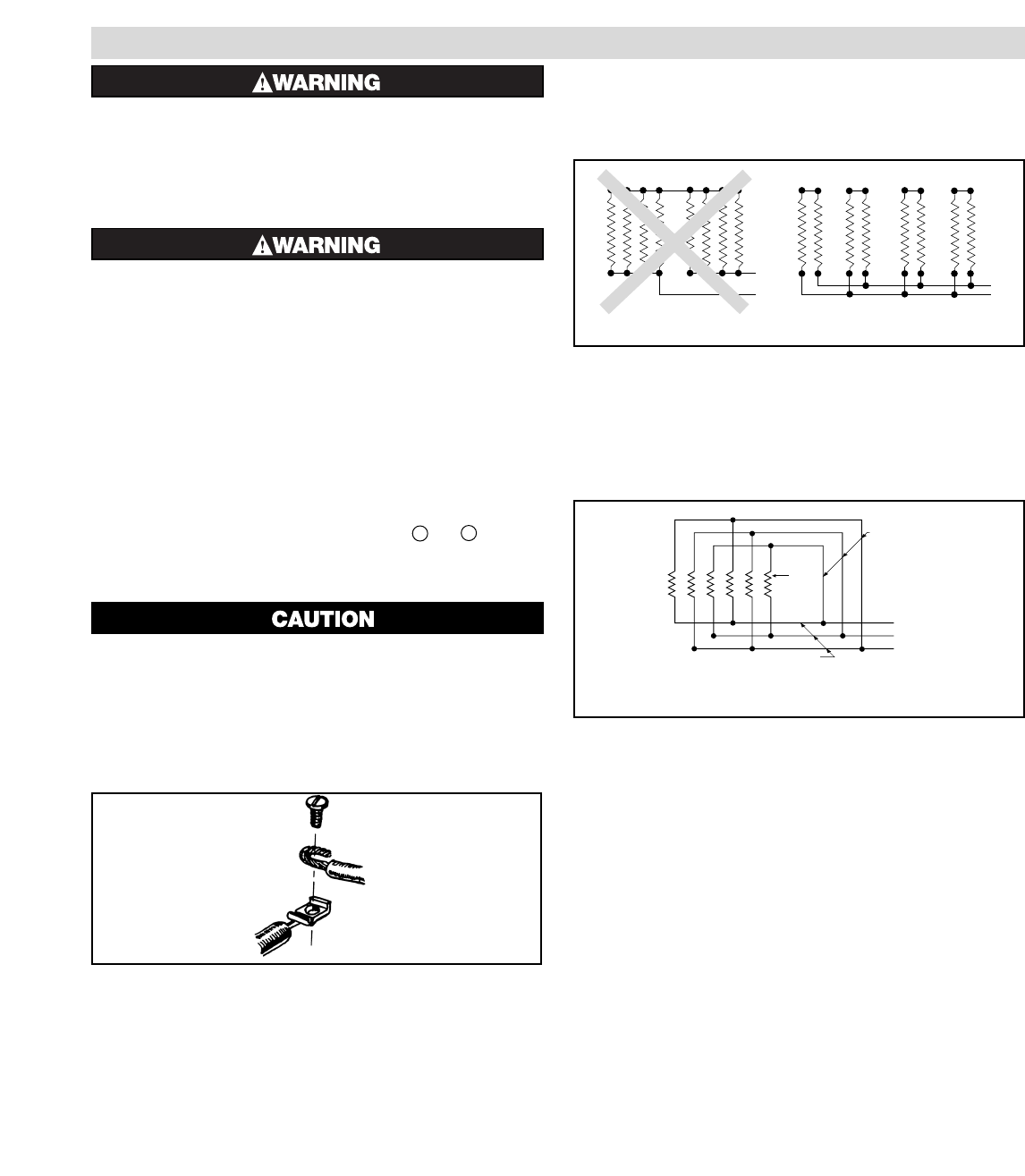
WIRING
ELECTRIC SHOCK HAZARD. Disconnect all power
before installing or servicing heater. Failure to do
so could result in personal injury or property dam-
age. Heater must be installed or serviced by a
qualified person in accordance with the National
Electrical Code, NFPA 70.
ELECTRIC SHOCK HAZARD. Any installation
involving electric heaters must be performed by a
qualified person and must be effectively grounded
in accordance with the National Electrical Code to
eliminate shock hazard.
1. Electrical connection to the type U-RAD Radiant Heater is
made through the 7/8” dia. opening in the end of the terminal cover of
the element assembly. A 1/2” flexible conduit connector is provided
with each element assembly for this purpose.
2. Wiring should be run in flexible or rigid metal conduit and must
be installed in accordance with the requirements of the National
Electrical Code and such other local requirements by a qualified per-
son as defined in the NEC.
3. Access to the element terminals is obtained by removing
the mounting bolt and nut (see Figure 8, item and ) and slid-
ing the terminal end of the element assembly out of the housing.
4. Wires supplying power to heating element terminals shall have
insulation rated for 150°C minimum.
High temperatures will oxidize copper. Use only
nickel-plated copper wire for supplying power to
heater. Do not use aluminum conductors.
5. A sufficient length of this wire (not less than 12”) should be
used to extend from each heater terminal into a connection box
location where the temperature does not exceed 300˚F.
6. Assemble terminal, screw and wire as shown in Fig. 5.
7. Hold terminal with pliers and tighten the terminal screw
securely with a screwdriver.
Note: Where circuit wiring is installed in locations of high
ambient temperature, conductors should be insulated in accor-
dance with requirements for temperature and voltage.
8. SERIES CONNECTION of Radiant Heaters of equal volt
and watt rating is permitted in all line voltages up to 600 volts.
In making such series connections it is necessary to observe the
“right” (series-parallel) connection rather than the “wrong”
(parallel-series) connection both shown in Figure 6. If heaters
are connected according to the “wrong” illustration, failure of
any one heater will cause progressive failure of other heaters
still operating.
9. DELTA CONNECTIONS — When heaters occur in multi-
ples of three, they may be connected to, and balanced across,
three-phase lines. The most commonly used connection is the
delta connection illustrated in Figure 7.
Three phase Delta connections to minimize inductive effect in
conduits are made per this diagram. The rule: run all 3 three-
phase conductors in the same conduit as far as possible. For sin-
gle-phase, run only two conductors and follow the same rule.
L1
L2
L1
L2
Wrong
Right
Radiant
Heaters
L1
L2
L3
Radiant
Heaters
3 Conductors
in 1 Conduit
3 Conductors
in 1 Conduit
FEDCBA
Figure 6
Figure 7
Figure 5
18
16



